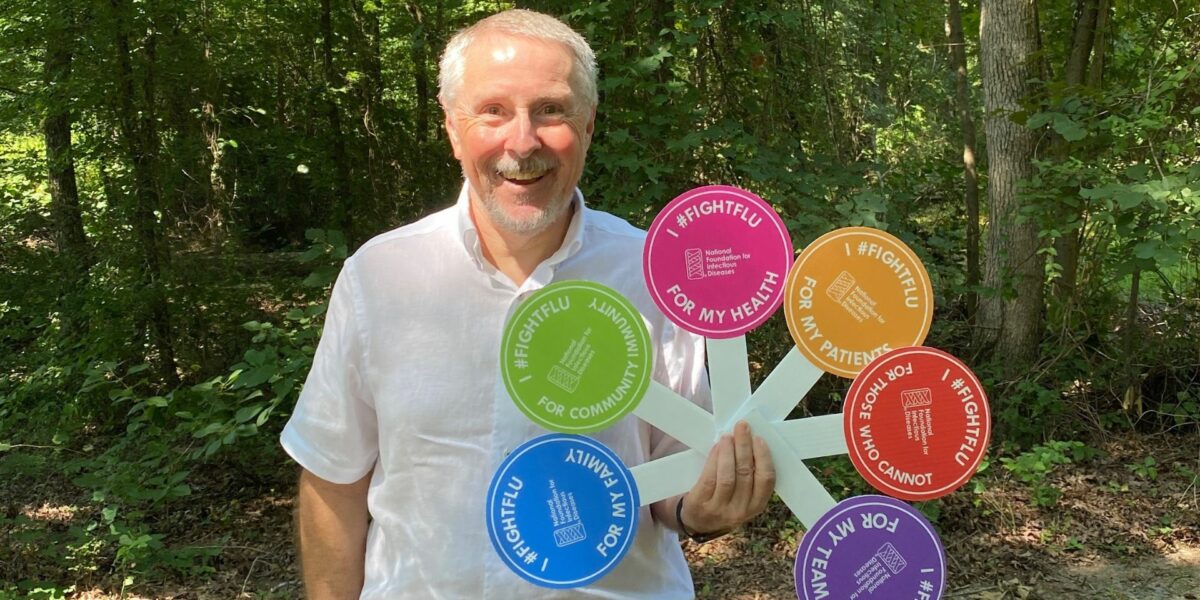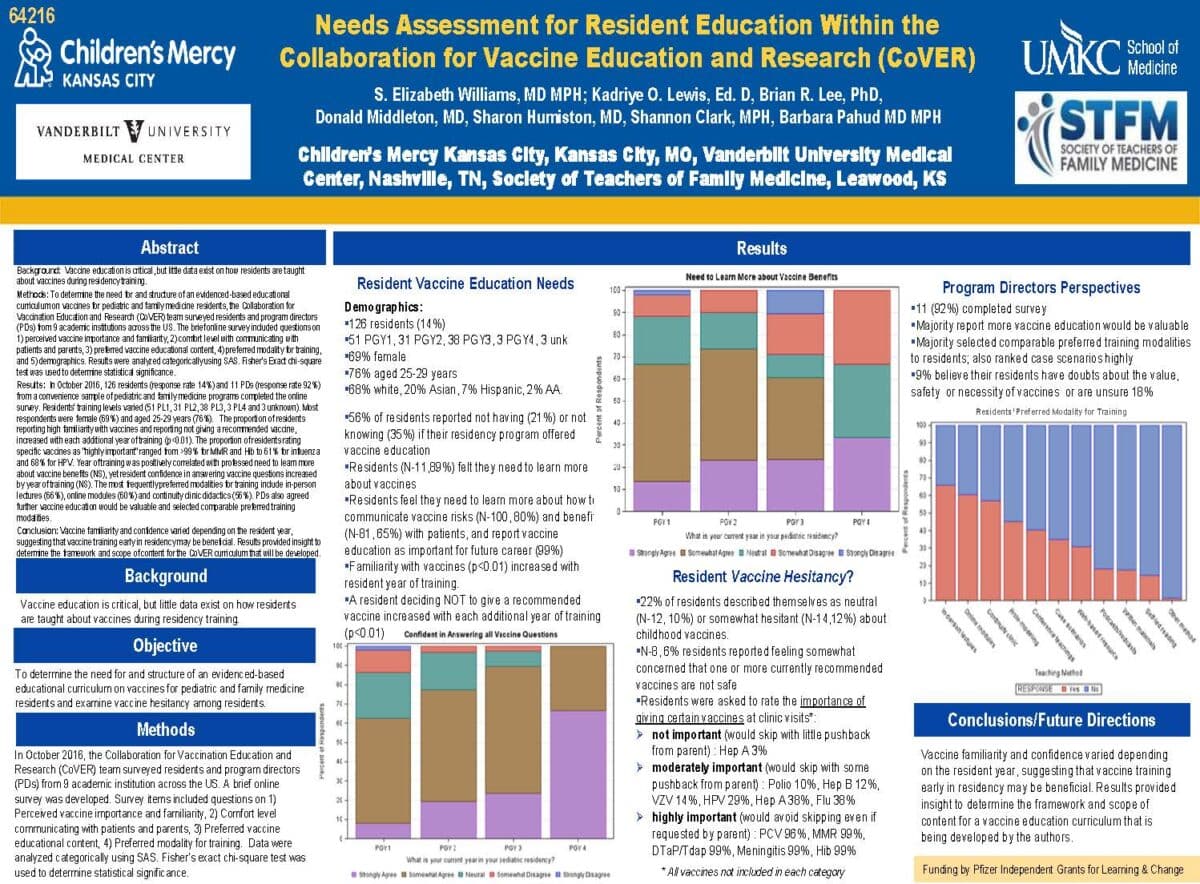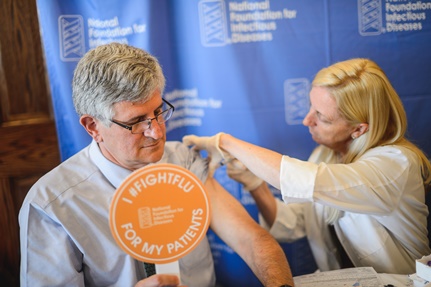
Conversations at the recent NFID Fall 2015 Clinical Vaccinology Course centered around the importance of immunizing healthcare professionals (HCPs) working in settings where they are at risk for exposure to serious, and sometimes deadly, diseases. HCPs also risk transmission to the patients they care for, their families, and colleagues. In addition to the impact on health, outbreaks can be costly and disruptive. For example, during a 2008 measles outbreak in Arizona, 7 of the 14 cases were acquired in healthcare settings, 7,195 HCPs were reviewed for evidence of immunity during the outbreak, and 25% were found to have no documentation of immunity in their employee charts. This prompted outbreak response measures in the two affected hospitals at an estimated cost of approximately $800,000, primarily to cover vaccination and furloughs related to lack of readily available records on evidence of immunity.
During the 2008 Arizona outbreak, an unvaccinated healthcare professional spread measles to a patient who required intensive care.
Those who work directly with patients or handle materials that may spread infection should get the appropriate vaccinations to reduce the chances of contracting or spreading vaccine-preventable diseases. The Advisory Committee on Immunization Practices (ACIP) recommends that all HCPs receive hepatitis B, influenza, Tdap, MMR, and varicella vaccinations.
Communicating with HCPs about their own vaccination status can be more challenging than expected. Addressing the following topics (and referring to 5 key communication tips) can result in a more effective conversation, even with those HCPs who may be vaccine-hesitant:
- Patient Safety: Stress the importance of vaccination to prevent spreading illness to the patients who they are caring for and others they may come into contact with who may be immunocompromised.
- Outbreak Prevention: Outbreaks are likely to occur in hospital settings due to the high volume of people and high number of people who are already sick. An outbreak at work disrupts workflow, staffing, and could result in forced time off work or furloughs.
- Individual Health: The best thing you can do for your health and the health of your family is to get vaccinated. Getting vaccinated lowers the risk of catching disease and spreading it to your family and loved ones.
Immunization is an essential component of disease prevention and control. Preventing healthcare-associated transmission of infectious diseases protects patients, HCPs, their families, and their communities. Visit Immunization Resources for the Workplace for additional information.
Be sure to join the next live discussion about immunizing healthcare professionals at the NFID Spring 2016 Clinical Vaccinology Course scheduled for March 18-20, 2016 in Phoenix, AZ. For more information, visit www.nfid.org/cvc.
To join the conversation, follow us on Twitter (@nfidvaccines), like us on Facebook, join the NFID Linkedin Group, and subscribe to NFID Updates.
Related Posts

Overcoming Barriers to Vaccination
NFID Medical Director Robert H. Hopkins, Jr., MD, shares his thoughts on communication tactics and other strategies to help overcome barriers to vaccination

Sharing Best Practices
The NFID Clinical Vaccinology Course encourages sharing of best practices through poster presentations and interactive sessions led by expert faculty featuring the latest information on updated vaccine recommendations and innovative and practical strategies for ensuring timely and appropriate immunization…

Are Vaccines Safe?
Probably the most dangerous aspect of getting a vaccine is driving to the doctor’s office to get it. Every year, about 30,000 people die in car accidents and even walking outside on a rainy day isn’t entirely safe—every year in the US, about 100 people are killed when struck by lightning. While routine daily activities pose a certain degree of risk, we choose to do them because we consider that the benefits outweigh the risks.

